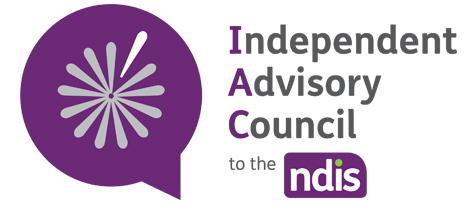First Nations Reference Group meeting bulletin, 20-21 February 2025
The Independent Advisory Council (IAC) First Nations Reference Group (Reference Group) met in Naarm, Melbourne and online on 20-21 February 2025. This was the first meeting of the Reference Group. In person members attended a Welcome to Country and Smoking ceremony with Wurundjeri Uncle Colin Hunter.
The Reference Group discussed:
what they have heard in their communities
the National Disability Insurance Agency (NDIA)’s priorities for First Nations communities
the NDIS First Nations Strategy.
Ms Leah van Poppel, IAC Principal Member and co-Chair of the Reference Group led the meeting.
What members have heard in their communities
Members noted how all Australian states and territories need representation to have their voices heard and highlight what their communities need. It was agreed to address membership gaps with representation of more geographic areas, and to include more women, young people and non-binary people.
Members raised that there are many definitions of ‘disability’ among First Nations communities.
Members asked for the NDIS portal to provide information and advice in multiple languages.
Members stressed the need for plan managers and support coordinators to work in culturally safe ways. They proposed that the NDIA funds family members who work with disabled people as part of participant plans. This would also address the lack of supports providers and culturally safe providers in some areas.
Members suggested cross-culture training for the NDIA to work better in remote communities.
Members noted how children’s diagnoses are lacking in remote communities. They shared how the public system is presenting multiple challenges and recommended more recruitment and retention to build the workforce. This would help First Nations communities navigate the system. Many remote communities have limited English speakers and need resources in other languages to help them understand the NDIA’s services and processes.
With complex issues (such as wheelchair access) facing remote communities, Members recommended Aboriginal Community Controlled Health Organisations (ACCHOs) come together each year to discuss what works, and what does not.
Members urged the NDIA to work to further understand specific concerns from LGBTQIA+ community members, neurodiverse people, and older people.
NDIA’s priorities for First Nations communities
All of the NDIA’s Deputy CEOs introduced themselves to Members. They shared their work priorities and responded to issues raised by Members. They noted First Nations communities were not participating in NDIA services as much as non-Indigenous people and that 4 out of 19 recommendations from the Royal Commission on Violence, Abuse, Neglect, and Exploitation of People with Disabilities have a direct impact on First Nations people.
The Deputy CEO of the First Nations Groups recognised the importance of cultural safety and said the NDIA was working towards providing training for the entire organisation. The NDIA is working to develop a First Nations cohort of NDIS planners, and a First Nations call centre.
NDIS First Nation Strategy 2025-2030
The NDIA presented an overview of its First Nations Strategy. Released on 17 January 2025, the Strategy represents a commitment to meaningful action to address barriers and challenges for First Nations people with disability.
It contains 4 priority areas for action, and a clear goal of ensuring the NDIS delivers and continues to create improved outcomes in the lives of First Nations people with disability.
The NDIA will co-design a Strategy Implementation Plan and Monitoring and Evaluation Framework during 2025, which will include a community engagement process.
More information on the Reference Group
The First Nations Reference Group will next meet on 12 June 2025. Find out more about IAC and Reference Group meetings and bulletins at the IAC website.
Information in Easy Read
You can also read this bulletin in Easy Read:
